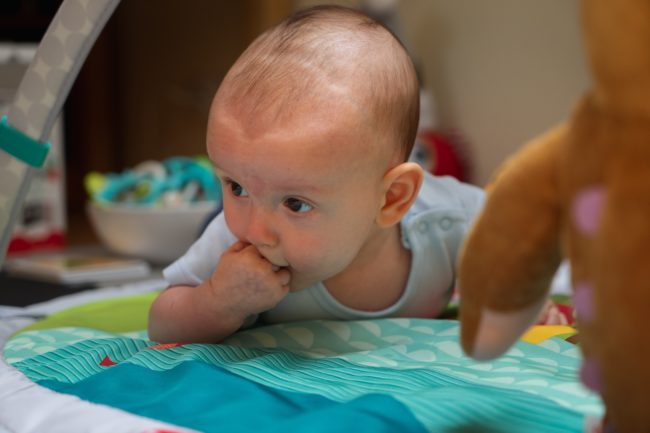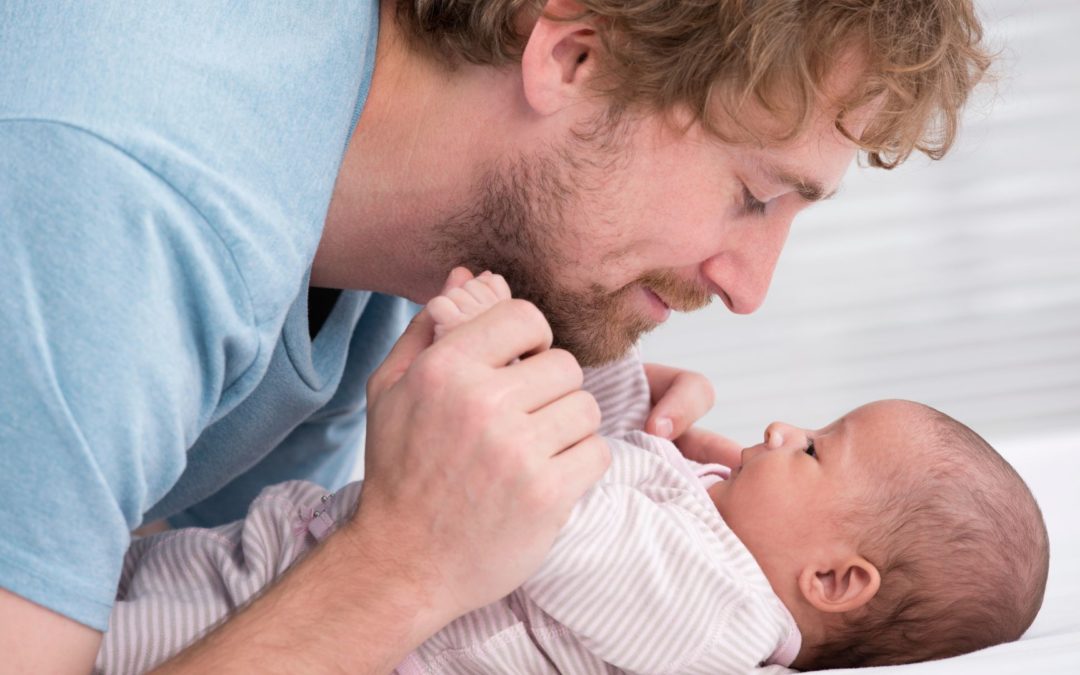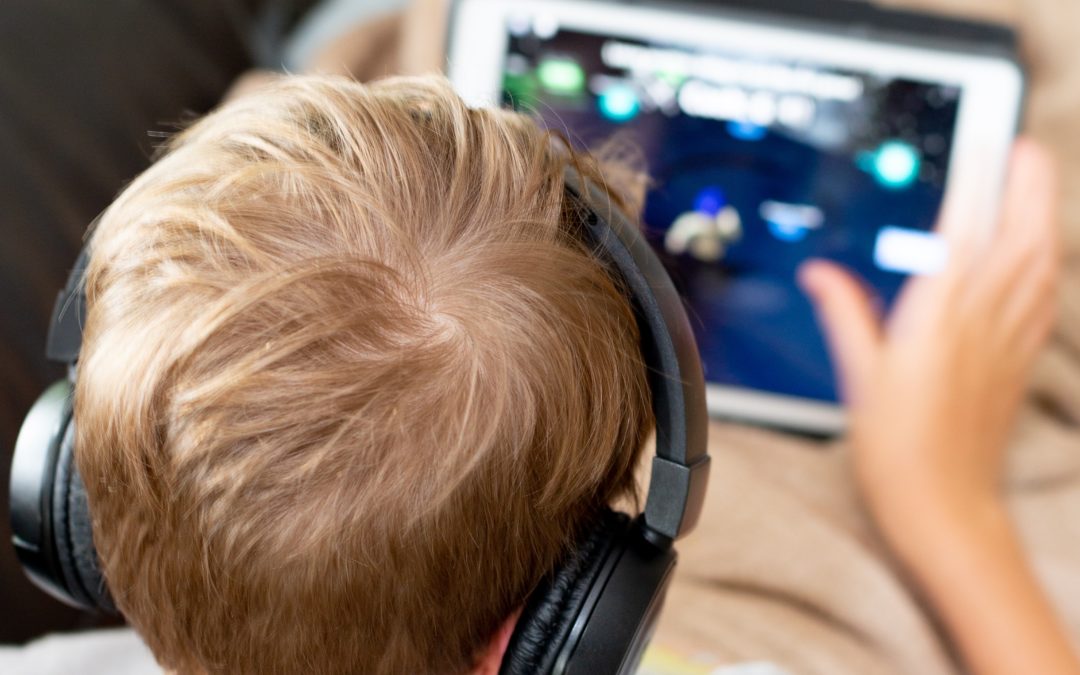
If your little one is sucking on their hand or fist, gnawing on their toys or seems distressed, then it’s likely that teething is the issue.
Teething usually begins around 6-9 months of age and can go on until children reach the age of 3. The first two teeth to appear are usually the front bottom two, and are likely to be followed by the front four upper teeth pushing through the gum line. Most kids have all of their 20 milk teeth by their 3rd birthday.
Some kids find teething painful, while others are barely bothered at all.
What are the first signs?
The first signs of teething are your baby drooling and wanting to chew on things. Some babies will only have a short experience of teething discomfort, while others can suffer for weeks at a time. The pain can also cause them to experience disrupted sleep and difficulty eating.
What you can do to help
One simple option is to try rubbing your clean finger on your baby’s gums. Also make sure you wipe their face often so that their drooling doesn’t cause chin rashes.
To relieve the pain, you can give them something to chew on. Make sure the teething toy is baby safe and big enough that they can’t swallow it. Some rubber teething toys can be placed in the fridge beforehand. Ensure that teething rings are never placed in the freezer though as they could hurt your baby’s mouth.
If your baby has already started on solid foods then giving him a chunk of raw carrot or apple to chew on can help, as can a breadstick. Ensure you always stay with your little one when they’re eating, however.
If your baby is still suffering then a trip to the chemist for some teething gel is another option. Teething gels contain a local anaesthetic and can be applied to the gum with a clean finger.
If you feel your baby is still distressed and in pain then you can give them a dose of sugar-free painkiller for infants.
When their teeth come through..
.. you need to start brushing. Arm yourself with a baby-suitable toothbrush and give their new teeth a gentle brush with just a little smear of paste. It’s normal for babies to not enjoy having their teeth brushed so don’t worry if you don’t manage to brush too much at first. Try and make it into a game as you do when trying to get them to open their mouth for food, such as ‘here comes the aeroplane!’.
The easiest position to brush their teeth in is by sitting them on your knee with their head resting on your chest. Brush in circular motions. You can use a smear of toothpaste on a piece of gauze if the brush is too tricky at first. There is no need to worry about your baby not spitting out the paste, but when they are old enough to understand, you can encourage them to spit out when brushing is finished.
Make sure babies or toddlers never walk around with a toothbrush in their mouth as it could cause an injury if they fall.
You will also need to register your baby with a dentist. At first you could take them to your own appointments so that they can see what happens and get used to the idea of going themselves.
You can find more information about teething and looking after your baby’s teeth here.









